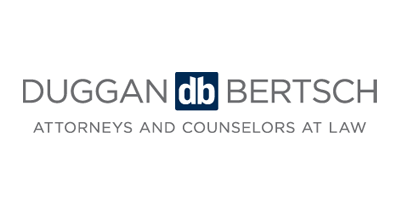By Prudy Gourguechon | Originally published on Forbes.com

The third annual State of Critical Thinking Study released yesterday by MindEdge Learning, an educational technology consultancy, reveals that while most Americans believe critical thinking and digital literacy are important capacities in today’s workplace, a large majority flunk a test that assesses those same abilities. The implications for educators and employers are significant but even more frightening are the immediate implications for free and fair elections.
The test examines whether respondents can reliably identify suspicious material on the internet. This means paying attention to such details as spelling or grammatical errors, the presence or absence of photo credits, indications that the content is promoted or suspicious web addresses. Only seven percent of the respondents scored an “A” on the test, answering eight or nine questions correctly. Three quarters of millennial respondents received an “F” grade, failing to get more than five questions right. Interestingly, older respondents scored a little better than Millennials who are generally considered more web-savvy.
Ominously, the trend is downward. In the first MindEdge study in 2017, 24% of respondents got eight or nine questions correct. The percentage decreased to 19% in 2018, slipping further to seven percent in this year’s study.
Another disturbing finding is that respondents vastly over-estimate their own competence in this arena. Eighty-four percent of those surveyed believe critical thinking is important in assessing online content for legitimacy and for verifying facts. A stunning 88% report that they are confident in their own critical thinking skills. This confidence butts up against the results of the study showing that the vast majority cannot pass a basic test that assesses the ability to identify fake news content. If you don’t know you have a vulnerability you can’t do anything about it.
The lesson here may be that we are all susceptible to the seduction of false or deliberately manipulative internet content and should be vigilant and humble rather than confident about our ability to detect it. The real danger may be a false belief that we are smarter than those who seek to promulgate misinformation or send emails designed to create hacking portals into private files. This is important data with obvious alarming implications for future elections. Despite their overconfidence in their own abilities and poor performance on the digital learning test, most of the MindEdge survey’s respondents were worried about possible foreign interference in the 2020 presidential election. Two thirds reported being concerned that social media and fake news sites will be used by foreign governments to influence the 2020 presidential election.
MindEdge’s title for its annual State of Critical Thinking Study is somewhat misleading. Critical thinking is an essential leadership capacity, and in fact a vital capacity for citizenship or any kind of work that involves decision-making. But it is far more complex than the digital literacy functions evaluated in the present study. Critical thinking includes the ability to make judgments, compare and contrast different scenarios, predict consequences of actions and overcome cognitive biases.
No matter how highly developed one’s capacity for critical thinking may be, it is always susceptible to regression. Under states of heightened emotionality we are all likely to have diminished capacity to think carefully and rationally. Our current social psychological state of political divisiveness and heightened fear is bound to make poorer thinkers of all of us.
Another force that decreases the capacity for thinking in a clear and discriminating manner is social pressure. As deeply social creatures, humans are uncomfortable taking an independent stance when others are jumping on a bandwagon. Unfortunately, the wish to conform to the group’s thinking is often unconscious.
The MindEdge study makes an important contribution in alerting us to overconfidence and underperformance as we encounter manipulated content on the internet. But the detection of false or misleading information on the internet can also be taught. And should be. Detection of suspicious emails or internet material requires monitoring emotional responses, increasing attentional capacity, a heightened index of suspicion and concrete information on the signs and signals that indicated deception. Companies would be wise to train their leaders and employees to become proficient in detection of phishing emails, native advertising (promoted material that mimics the site it is sitting on), fake news stories and other risks that populate the internet landscape.
Prudy Gourguechon is a psychiatrist and psychoanalyst who advises leaders in business and finance on the underlying psychology of critical decisions. She is currently working on a book, “Starting Older: Understanding and Making the Most of a New Life Stage.” Prudy is part of the Chicago Chapter of SoPE, a senior contributor to Forbes.com on leadership strategy, and President of Invantage Advising, a consulting firm specializing in the psychology of business. www.invantageadvisiing.com


